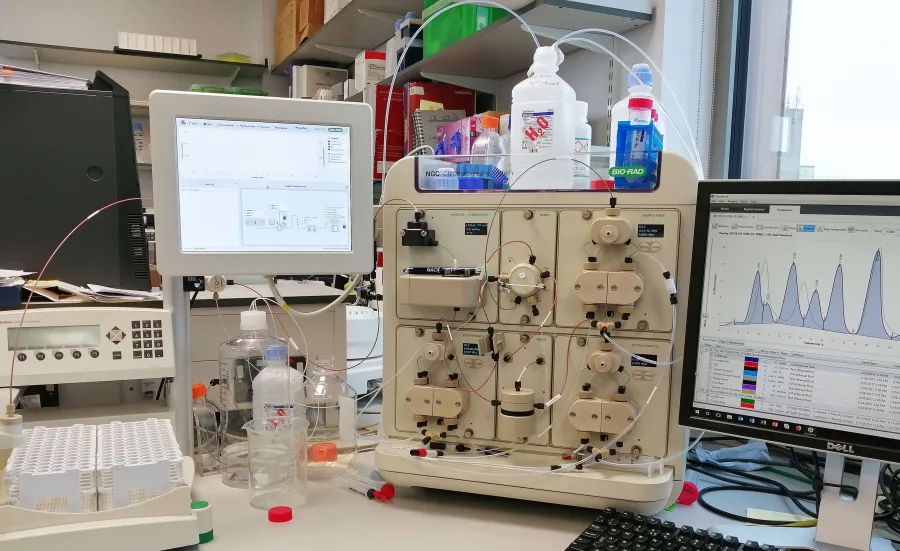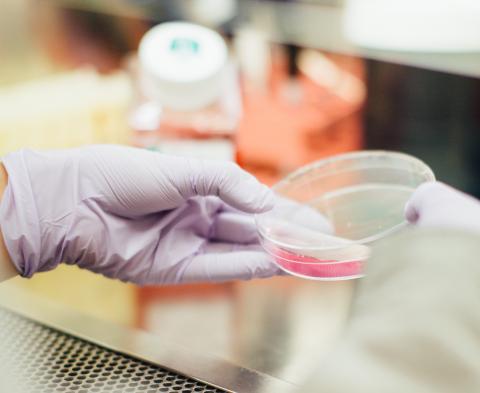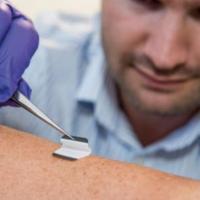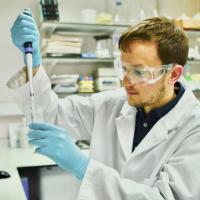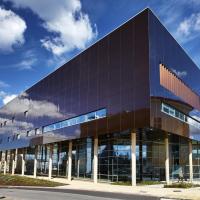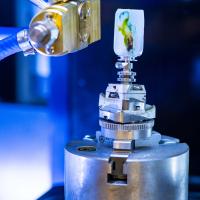About the Cancer Sciences Protein Facility
The Cancer Sciences Protein Facility has all the equipment and expertise to produce tailored recombinant proteins.
Our focus is primarily on proteins and antibodies involved in cancer, but we also produce proteins for other applications.
The Protein Facility has produced over 100 different proteins since 2006, contributing to over 45 articles. The protein production incorporates the whole process from cloning and expression to purification and quality control.
Our highlights include:
- Cloning of the gene of interest in expression vector
- Overexpression of proteins in bacteria, insect cells or mammalian cells
- Purification of protein by affinity, ion exchange and size exclusion chromatography
- Applications: Cell culture, flow cytometry, microscopy, ELISA, crystallography
